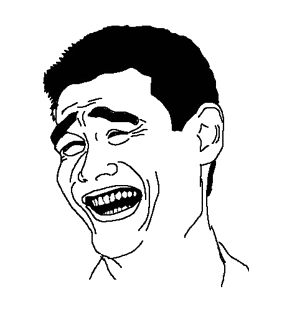You are using an out of date browser. It may not display this or other websites correctly.
You should upgrade or use an alternative browser.
You should upgrade or use an alternative browser.
Why do they call it a rubber match?
- Thread starter mb23100
- Start date
- Joined
- Jul 6, 2014
- Messages
- 6,597
- Reaction score
- 3,492
A rubber match only refers to the third match when the score is 1-1
"According to Paul Dickson's The New Dickson's Baseball Dictionary (Harcourt Brace, 1999), a "rubber game" is "The last and deciding game of a series when the previous games have been split; e.g., the seventh game of the World Series." This tie-breaking sense of "rubber" apparently originated in the pulse-pounding English game of "bowls," or lawn bowling. Despite its name, bowls has little in common with American bowling, and consists of rolling wooden balls (called "bowls") across a level green, the object being to get your ball as close as possible to (but not to hit) a little white ball at the other end of the green. "Rubber" in its tie-breaking sense first appeared in the context of bowls around 1599, and was in use by the card-playing crowd (whist, bridge, etc.) by 1744. A set of three games of bridge is still generally referred to as a "rubber."
: Unfortunately, no one knows where "rubber" in this sense came from. It appears to be unrelated to the elastic sort of "rubber." (Incidentally, our modern elastic "rubber" is short for "India-rubber," from its original source in the East Indies. "Rubber" previously meant anything used to rub, smooth or clean.) Brewer's Dictionary of Phrase and Fable ventures that the term may have referred to two "bowls" rubbing together, a fatal error in the game of bowls. Or it might be a metaphorical use of "rubber" (something that expunges) referring to the "sudden death" third game of a series, the loss of which would conclusively "rub out" the losing team's hopes. But there is, sad to say, no solid evidence for either theory."
"According to Paul Dickson's The New Dickson's Baseball Dictionary (Harcourt Brace, 1999), a "rubber game" is "The last and deciding game of a series when the previous games have been split; e.g., the seventh game of the World Series." This tie-breaking sense of "rubber" apparently originated in the pulse-pounding English game of "bowls," or lawn bowling. Despite its name, bowls has little in common with American bowling, and consists of rolling wooden balls (called "bowls") across a level green, the object being to get your ball as close as possible to (but not to hit) a little white ball at the other end of the green. "Rubber" in its tie-breaking sense first appeared in the context of bowls around 1599, and was in use by the card-playing crowd (whist, bridge, etc.) by 1744. A set of three games of bridge is still generally referred to as a "rubber."
: Unfortunately, no one knows where "rubber" in this sense came from. It appears to be unrelated to the elastic sort of "rubber." (Incidentally, our modern elastic "rubber" is short for "India-rubber," from its original source in the East Indies. "Rubber" previously meant anything used to rub, smooth or clean.) Brewer's Dictionary of Phrase and Fable ventures that the term may have referred to two "bowls" rubbing together, a fatal error in the game of bowls. Or it might be a metaphorical use of "rubber" (something that expunges) referring to the "sudden death" third game of a series, the loss of which would conclusively "rub out" the losing team's hopes. But there is, sad to say, no solid evidence for either theory."
- Joined
- Jul 17, 2013
- Messages
- 42,407
- Reaction score
- 38,022
In B4 condom pix
- Joined
- Apr 21, 2016
- Messages
- 8,321
- Reaction score
- 21,578
Rogan seems to think a third fight between Yoel and Whittaker would be a rubber match.


- Joined
- Jun 13, 2009
- Messages
- 47,310
- Reaction score
- 106,364
Third fight in a trilogy is always referred to as a rubber match. Is there a story behind this?

- Joined
- Apr 19, 2013
- Messages
- 23,987
- Reaction score
- 11,182
I thought the term derived from the card game Bridge, but according to an online etymology article the term seems to derive from lawn bowling.
https://english.stackexchange.com/q...did-the-sports-and-game-term-rubber-come-from
https://english.stackexchange.com/q...did-the-sports-and-game-term-rubber-come-from
- Joined
- Nov 7, 2014
- Messages
- 29,323
- Reaction score
- 2,804
- Joined
- Sep 5, 2012
- Messages
- 34,403
- Reaction score
- 30,456
A rubber match only refers to the third match when the score is 1-1
"According to Paul Dickson's The New Dickson's Baseball Dictionary (Harcourt Brace, 1999), a "rubber game" is "The last and deciding game of a series when the previous games have been split; e.g., the seventh game of the World Series." This tie-breaking sense of "rubber" apparently originated in the pulse-pounding English game of "bowls," or lawn bowling. Despite its name, bowls has little in common with American bowling, and consists of rolling wooden balls (called "bowls") across a level green, the object being to get your ball as close as possible to (but not to hit) a little white ball at the other end of the green. "Rubber" in its tie-breaking sense first appeared in the context of bowls around 1599, and was in use by the card-playing crowd (whist, bridge, etc.) by 1744. A set of three games of bridge is still generally referred to as a "rubber."
: Unfortunately, no one knows where "rubber" in this sense came from. It appears to be unrelated to the elastic sort of "rubber." (Incidentally, our modern elastic "rubber" is short for "India-rubber," from its original source in the East Indies. "Rubber" previously meant anything used to rub, smooth or clean.) Brewer's Dictionary of Phrase and Fable ventures that the term may have referred to two "bowls" rubbing together, a fatal error in the game of bowls. Or it might be a metaphorical use of "rubber" (something that expunges) referring to the "sudden death" third game of a series, the loss of which would conclusively "rub out" the losing team's hopes. But there is, sad to say, no solid evidence for either theory."

- Joined
- Jul 7, 2017
- Messages
- 4,371
- Reaction score
- 70
Only 3 posts after yours. Good call. You know these forums too wellIn B4 condom pix
- Joined
- Mar 17, 2017
- Messages
- 39,109
- Reaction score
- 9,767
It's called a rubber match because the loser has to take it raw dog.
- Joined
- Jul 17, 2013
- Messages
- 42,407
- Reaction score
- 38,022
Only 3 posts after yours. Good call. You know these forums too well

- Joined
- Oct 17, 2015
- Messages
- 21,164
- Reaction score
- 4,677
It gives someone the opportunity to "bounce" back and redeem themselves. Like a rubber ball drops down but at its very bottom "bounces back"
- Joined
- Sep 1, 2013
- Messages
- 5,327
- Reaction score
- 1
Rogan seems to think a third fight between Yoel and Whittaker would be a rubber match.

I know, its funny because romero won twice
- Joined
- Jul 7, 2014
- Messages
- 2,272
- Reaction score
- 1
rubber match is when one or both fighters have staph. it is for their own protection.
- Joined
- Sep 9, 2009
- Messages
- 6,762
- Reaction score
- 2
Could be. like bounce back from a loss.It gives someone the opportunity to "bounce" back and redeem themselves. Like a rubber ball drops down but at its very bottom "bounces back"
- Joined
- Sep 9, 2009
- Messages
- 6,762
- Reaction score
- 2
Where did, I'm rubber, you're glue come from?
- Joined
- Aug 15, 2010
- Messages
- 9,311
- Reaction score
- 4,597
I know, its funny because romero won twice
Confirmed you didn’t even see the first fight




